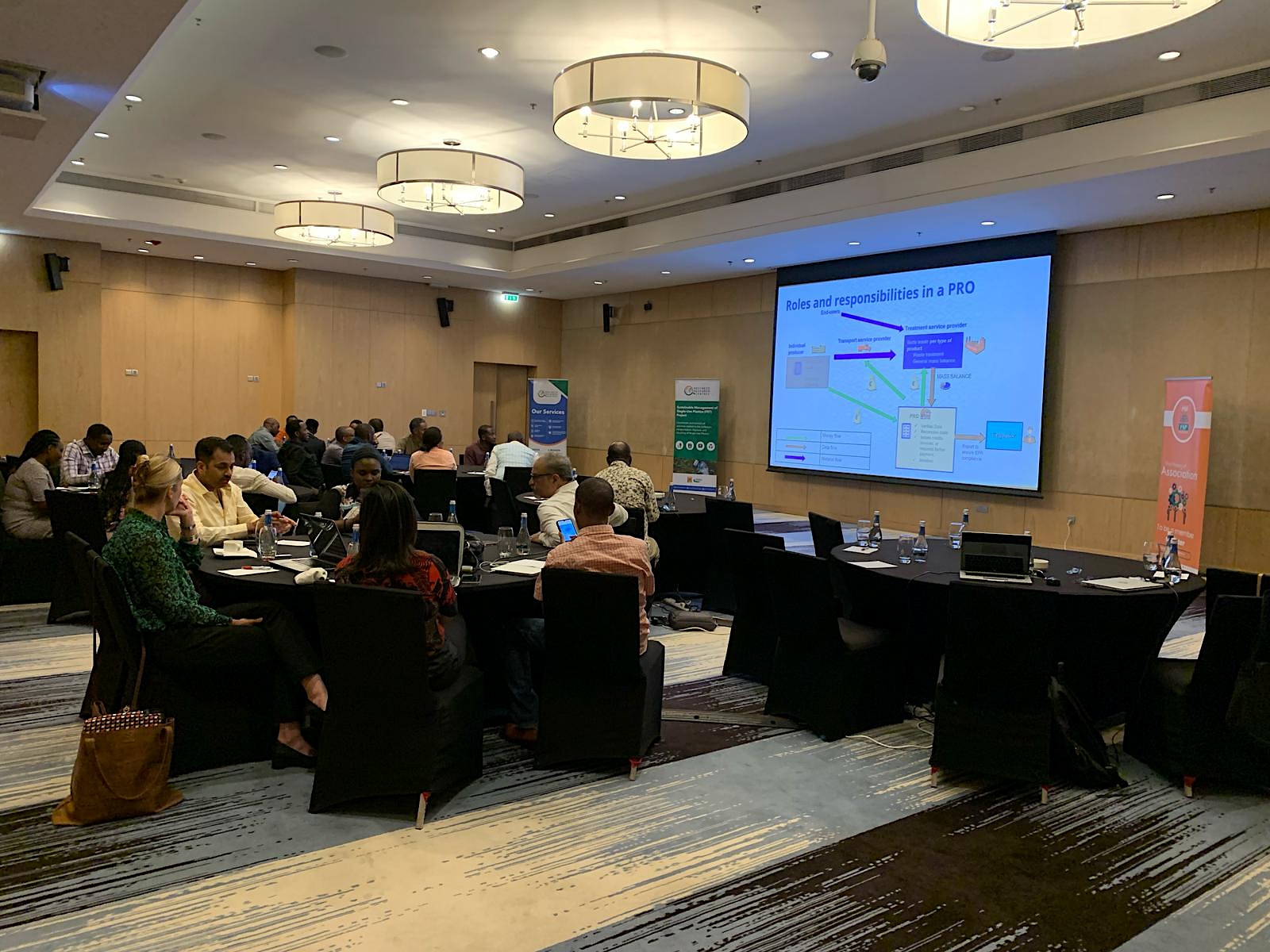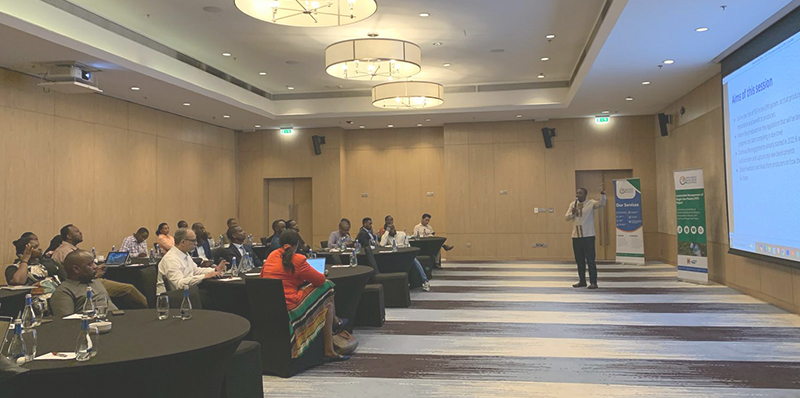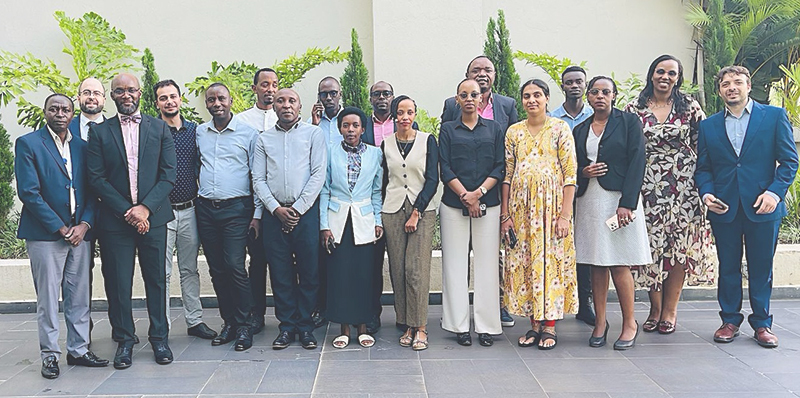
Actively engaging Rwanda’s private sector in e-waste management
In 2022, Rwanda generated 10 million kilograms of e-waste but only 20 per cent was formally collected and recycled, according to the 2024 Global E-waste Monitor.
Given the rapid rise in digitalization and consumption of electronic devices, Rwanda seeks to implement robust recycling and disposal systems to mitigate environmental damage and to protect public health. The private sector plays a crucial role for the rollout of e-waste regulations by endorsing the extended producer responsibility (EPR) policy principle.
Under the Developing and Implementing a Circular Economy for Electronics project, the Government of Rwanda, the Telecommunication Development Bureau (BDT) of the International Telecommunication Union (ITU), and the Communications, Space, and Technology Commission (CST) of Saudi Arabia, are working together to reinforce the country’s e-waste disposal regulations by establishing a Producer Responsibility Organization (PRO) for Rwanda’s electronics sector.


A PRO is established as a mechanism for the private sector to collectively manage the end-of-life phase of electronics. It ensures that companies comply with EPR regulations and fulfill their legal obligations related to the collection, recycling and disposal of waste generated by or from their products.
“The Ministry of ICT and Innovation recognizes the critical role of Extended Producer Responsibility in fostering a sustainable and circular economy,” said Alice Higiro, Director of Smart Cities and Innovation at the Ministry of ICT and Innovation (MINICT), Rwanda. “Our collaboration with the International Telecommunication Union has been instrumental in strengthening Rwanda’s regulatory framework for e-waste management, ensuring that technological advancement goes hand in hand with environmental stewardship. By working closely with industry stakeholders, we are paving the way for a robust, data-driven compliance system that will enhance accountability, promote innovation, and position Rwanda as a regional leader in sustainable e-waste management. We remain committed to advancing policies that drive long-term impact and support a greener digital future.”
The Business Research Council (BRC), which is housed under the Private Sector Federation (PSF), has been identified as Rwanda’s PRO, and will mobilize the active engagement of the private sector, which is mainly composed of approximately 2,500 producers (importers and distributors) of electronics. The aim is that the PRO will be self-functioning starting in January 2026 as the project between ITU and CST comes to a close.
“The Private Sector Federation, with assistance from ITU and CST, is in the process of establishing a compliance scheme for e-waste for the electronics sector in Rwanda. ITU is supporting us to develop tools for efficient compliance, reporting and capacity-building. We are excited to be part of this journey to advance sustainable e-waste management in Rwanda,” said Callixte Kanamugire, Chief Advocacy Officer, Private Sector Federation.
Earlier this year, consultations with government agencies, electronics producers, importers, and consumers were held to discuss the terms of member engagement, the first decision-making framework, and the digital services to be employed to monitor compliance.
Local stakeholders are supported by both ITU and CST with technical assistance to the BRC, including recruiting leading producers for sustainable e-waste management, and on setting up a financing mechanism for long-term EPR compliance.
The PRO will lead capacity-building initiatives and propose essential tools for the full implementation of the EPR system.
Rwanda at the forefront of regional transformation towards circularity
The lessons gained from establishing the PRO will serve as the blueprint for other countries to adapt to their national contexts when faced with similar environmental challenges.
The continued collaboration between the public and private sectors in Rwanda will ensure alignment between technological progress and sustainability, paving the way for a greener future.
This is an ITU Development #DigitalImpactUnlocked story
About the project
The Developing and Implementing E-waste Policy and Regulation for a Circular Economy project provides three beneficiary countries—Paraguay, Rwanda and Zambia—with the tools and steps needed for the successful and economically viable management of waste electrical and electronic equipment (WEEE) in a circular economy.
Learn more about the project.
